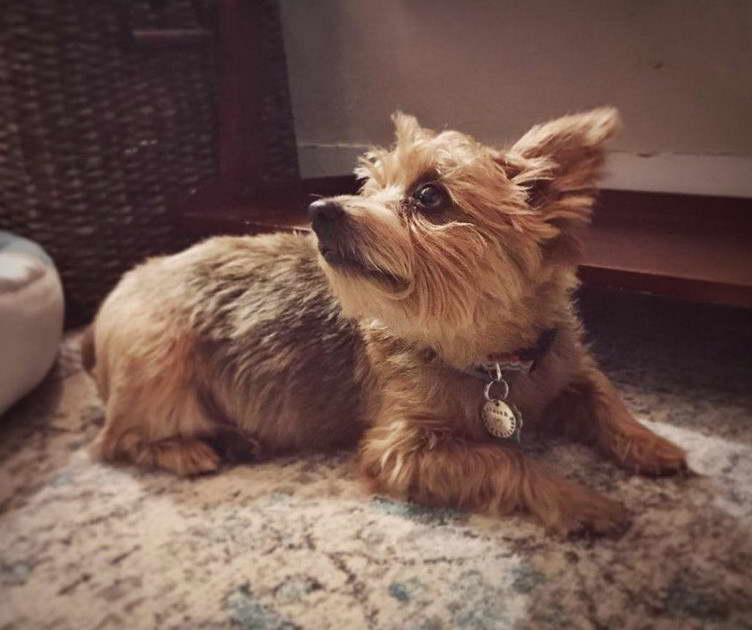
Is a Norwich Terrier Mix Right For Your Family?
If you’ve been considering adopting a Norwich terrier mix, you’ve come to the right place. These dogs are small but mighty and highly intelligent. The Norwich is not a typical aggressive breed and thrives on daily activity. Norwich is constantly hungry and will eat anything edible. Although the Norwich is a tenacious breed, it rarely barks without reason. Rather, it barks only when it recognizes a stranger or sees a threat.
While Norwich is considered a healthy breed, they are susceptible to certain health problems, such as upper airway syndrome. This disorder affects the voice box and can lead to respiratory problems and exercise intolerance. If left untreated, upper airway syndrome can cause distress and even death. This problem can be treated with proper diet, regular vet visits, and exercise. You can find your Norwich terrier’s diagnosis at any veterinary clinic.
The Norwich is an excellent family pet. If raised around children, Norwich’s are good with young children. However, if you adopt an adult Norwich that has not grown up with kids, it may be hesitant to play with younger children. However, the Norwich breed is robust and can handle roughhousing with young children. If you’re considering adopting a Norwich terrier mix, consider the benefits it will bring to your family.
Although Norwich’s don’t require a large amount of exercise, they need regular playtime.
If you have a yard, make sure it’s fenced in so you can supervise the activity of your puppy. The breed is often stubborn and strong-willed, so if your new pup is unruly, it’s important to remember this trait. A little bit of exercise can go a long way in training a new dog.
The Norwich Terrier has a wiry coat, which requires regular brushing and occasional bathing. Be sure to clip their nails if you plan on bathing them often. Norwich should be brushed daily and bathed at least once a year. You should also keep their teeth and gums clean. If you fail to do so, your dog could develop dental problems and may even lose teeth. The best way to care for your Norwich terrier is to keep them healthy.
Norwich terrier mixes can inherit some eye conditions. Eye problems, such as glaucoma, can lead to blindness if untreated. Glaucoma is an eye condition that may be detected by symptoms such as squinting, watery eyes, and redness in the whites of the eyes. Pet owners rarely notice the pain, but people suffering from glaucoma report that the pain feels like an ice pick inserted into their eye. Eyelids may bulge as a result of advanced cases.
Despite the small size, the Norwich terrier is a sturdy and affectionate little dog with a happy disposition.
It should stand between 10 inches and 12 pounds at the shoulder and weigh at least 12 pounds. It should also have a short, floppy tail. If the breed is healthy, it will grow to be at least twelve pounds. It has a foxy, short, wiry coat with a definite undercoat. Norwich terriers shed their coats twice a year. They need to be brushed twice a week. You can choose from red, wheaten, or a mix of both.
The Norwich Terrier has a more sociable temperament than other terrier breeds. Originally bred to be used as fox hunters, Norwich terriers were popular among university students. It is thought that the Norwich Terrier was developed from a cross of a small Irish Terrier and a smaller Cairn Terrier. Regardless of the parentage of the two breeds, the Norwich terrier is a favored companion for humans.
Norwich terriers are a highly intelligent, energetic breed that thrives with companionship.
Although they require moderate exercise and plenty of companionships, Norwich terriers are tolerant of cats. As a result, they make ideal guard dogs. Despite the feisty personality of the Norwich terrier, they are also highly untrustworthy when off-leash. If bored, they may chew or destroy your home.
While Norwich terriers are highly intelligent, they are slow to housebreak. Using a crate or kennel is an excellent way to help your Norwich puppy housebreak. Using a good size indoor cage or kennel, your Norwich will not soil the bedding. Just make sure that you reward your pup with treats and verbal praise. This will reinforce the behavior and make training a success.

Meet Rose Camilla, an expert in the Terrier dog breed and an active writer and publisher. Camilla has been working with Terriers for over 12 years and her passion for them has only grown stronger with time. She has dedicated her life to understanding, training, and writing about Terriers.

